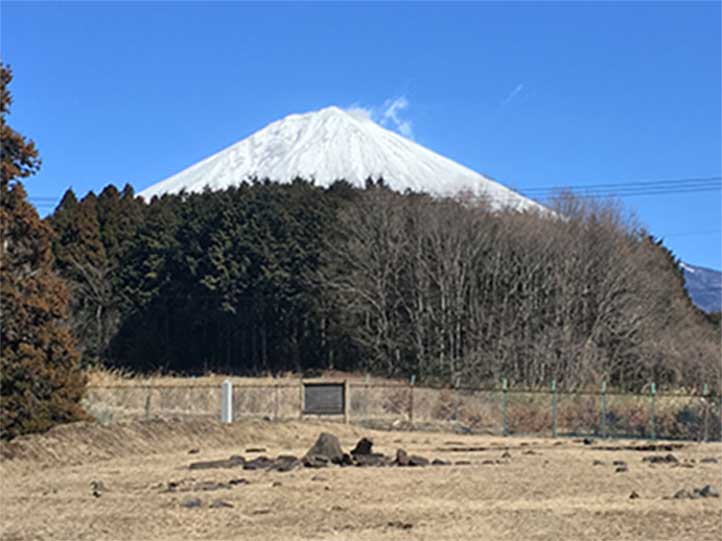
Mt. Fuji and the Sengo stone circle (c. 5,000 years ago)
The Importance of Cultural Diversity. A long-term comparative perspective between prehistoric Japan and Britain – with Junzo Uchiyama
- 21 January 2019
- 6:45pm
- The Swedenborg Society, 20-21 Bloomsbury Way (Hall entrance on Barter St), London WC1A 2TH
- https://www.japansociety.org.uk/event/junzo-uchiyama/
- 020 7935 0475
- events@japansociety.org.uk
- Tweet
The most distinct characteristic of human beings is our ability to create various cultures. While genetic studies have confirmed that modern humans are biologically a species which emerged a relatively recent 200,000 years ago and which has a high level of genetic homogeneity, humans have developed amazing cultural diversity. We see this in the rich variety of languages, material cultures, values and life styles around the world. Furthermore, studies in archaeology and history have revealed that throughout our history these cultures have continuously been changing.
On the other hand, it is also true that, considered from a long-term historical perspective, significant similarities can be found in different cultures which are geographically distant from each other. Prehistoric Britain and Japan after the Last Glacial Period (11,000 to 3,000 years ago) would be a representative example. Both include stratified social structures, complex hunting-gathering-based economy, and stone monuments such as Stonehenge and stone circles. Historical parallel phenomena like these must offer clues to understanding how people develop their own cultures in the context of their environment.
In this paper, focusing on cultural similarities in prehistoric Britain and Japan, Uchiyama will first discuss the reasons why human beings have changed their lifeways throughout the history, creating cultural diversity. He will then turn to the modern world and the tendency for societies to become inward-looking, which results in an increasing intolerance to different cultures. He will consider why such a tendency could be potentially dangerous to our future and what actions we could take from a long-term historical perspective.
Junzo Uchiyama is an environmental archaeologist, who obtained his M.A. from University of Durham in 1996 and a PhD from SOKENDAI, the Graduate University for Advanced Studies, Japan in 2002. Based on the methodology of zooarchaeology, his main academic interest has been human historical adaptation processes to their environments during “Neolithisation”, the transitional period from hunting-gathering to agriculture-based societies since the Last Glacial period, using the Japanese Archipelago during the Jomon period as a main research field.
Apart from Jomon research, his fields of study have extended into various other areas in Circumpolar Eurasia such as Northern England, Korea, and the Russian Far East, with aims at cross-cultural comparisons of the socio-economic and cultural adaptation during Neolithisation. In particular, he has engaged in investigations of Mesolithic sites in England for many years, including the Vale of Pickering in North Yorkshire.
Uchiyama is currently a Handa Japanese Archaeology Research Fellow at the Sainsbury Institute for the Study of Japanese Arts and Cultures, University of East Anglia, after working as a leader of an international research project at the Research Institute for Humanity and Nature, Kyoto and serving as a professor at the Mt. Fuji World Heritage Centre, Shizuoka.
To reserve your place, please call the Japan Society office on 020 3075 1996, email events@japansociety.org.uk or submit the online booking form.
